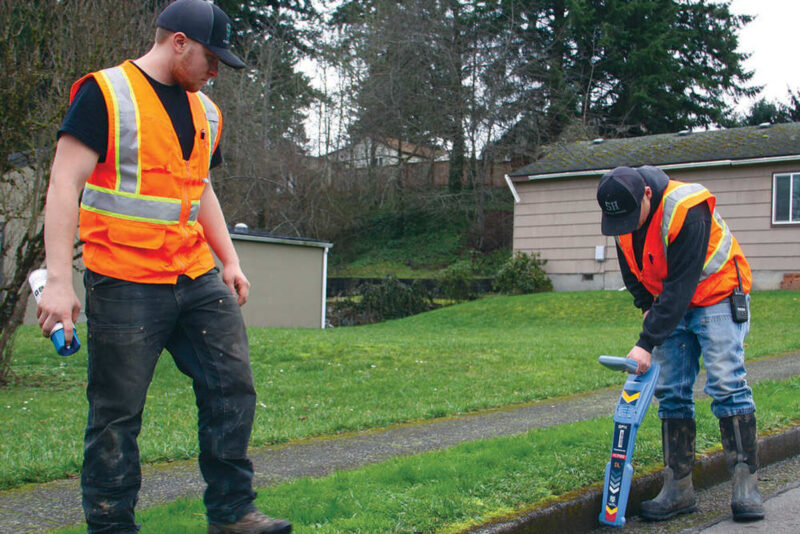Sean C. Morgan
The city has plugged around 150 water pipe leaks since mid-2018 in an effort to reduce the amount of water apparently lost from the city’s water distribution system – nearly half of what it produced two years ago.
In 2018, the city was unable to account for 27.5 million cubic feet of water, more than 206 million gallons of water, it produced. According to a report given to the City Council during its regular meeting on Jan. 28, that’s 45.6 percent of the water the city’s Water Treatment Plant produced that year.
The city contracted with a company in late 2018 to identify leaks. The city has repaired 67 out of 69 leaks since then, said Engineering Technician Trish Rice. The city purchased leak detection equipment because it was cheaper than contracting for the service and identified additional leaks. In 2019, the city repaired about 120 leaks.
It also took the city’s oldest water reservoir off line, Rice said. That reservoir, built in 1938 and the smallest of its main reservoirs at 300,000 gallons, was leaking 10 gallons per minute.
The city also has started replacing meters with new ultrasonic water meters, which can be measured in-house by employees using a mobile tablet. The meters may still be read by residents.
The new meters are better at measuring low flows of water, such as a dripping faucet, said Wes Glenn, who works in water distribution. As meters age, the parts wear out and they measure low flows poorly, which may account for some of the water loss.
Rice said Public Works also completed two replacements of old 2-inch lines last year, on Spruce Street off 12th Avenue and Nandina Street off 22nd Avenue.
In 2019, the city “saw a little bit of a decrease (although) not as pronounced a difference as we were hoping to see,” Rice said.
In 2019, the city had a total of 24.9 million cubic feet, 186 million gallons, lost in the distribution system. That total is about 42.5 percent of the water produced by the city in 2019 and 2.8 percent less than in 2018.
The amount of water loss has increased steadily since 2015, when the city could not account for 20.7 million cubic feet, about 39.1 percent of the water it produced.
Five years later, Public Works is continuing to locate and repair leaks, and it is continuing with plans to replace old 2-inch water lines.
Springman said each new water meter costs $160 to $180, and replacing all of them could cost $630,000 or more.
City Manager Ray Towry told the council he would discuss it during their annual multi-day training session scheduled for Friday through Sunday.
He said replacing all meters would affect water rates.
The city also is disconnecting services from roughly three areas, parts of 12th, 18th and Elm streets, that have two parallel water lines in the street, Rice said. Public Works employees do not know why, in the past, the city installed new lines and left old lines behind where residences remained connected to the old line.
Attending the meeting were councilors Cortney Nash, Susan Coleman, Lisa Gourley, Diane Gerson, James Goble and Dave Trask. Mayor Greg Mahler was absent.
In other business, the council:
– Approved a new two-year contract with Municipal Court Judge Larry Blake. Compensation remains the same as the previous contract, with a monthly salary of $4,285.42. Blake has been judge since 2006.
– Approved a plan for Towry and Community and Economic Development Director Blair Larsen to travel out of state to Vancouver, Wash., to attend the annual International City Managers Association Conference. Participants will receive 2.5 days of training.
– Held the second reading of a proposed ordinance that, if approved, would prohibit the use of bus shelters for any other purpose than waiting for a bus.





